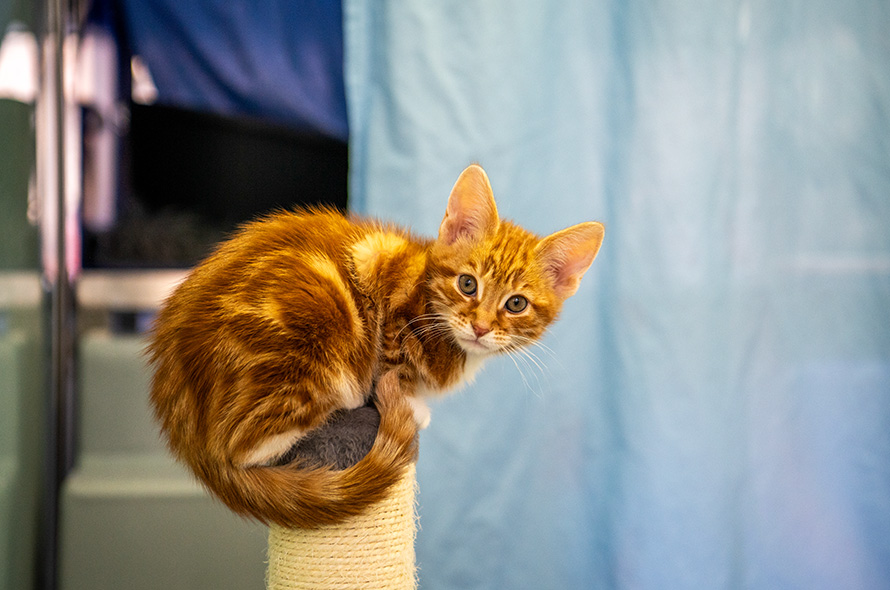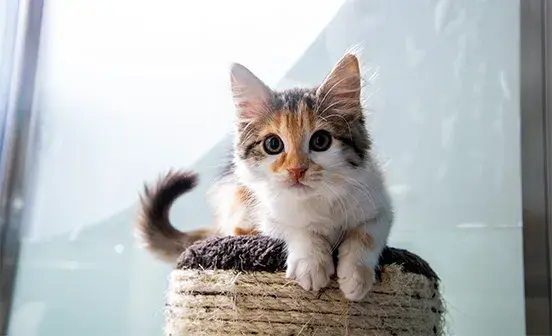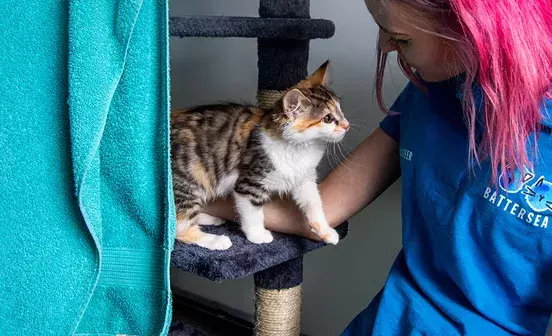Every day at Battersea we receive enquiries to rehome kittens, and this has only increased during the recent lockdowns. While we always strongly encourage you to adopt a kitten from a rescue centre, there may be times when this isn’t possible. In those cases, it is vital that you do your research.

The Kitten Checklist is a resource for anyone looking to introduce a kitten into their home. It offers an easy, step-by-step guide to rehoming a kitten from a non-rescue source.
What is the Kitten Checklist?
The Kitten Checklist has been developed by animal welfare organisations to help those looking to bring home a kitten make informed decisions that protect both the kitten’s and the mother cat’s welfare.
It helpfully breaks down those steps you need to take to ensure you are rehoming from a responsible source. It includes crucial questions you should ask prior to potentially meeting your kitten, such as:
- Are they are freely interacting with other kittens in their litter? Kittens should be kept together with their litter mates in an appropriately sized space to allow them to interact.
- Does the breeder know who the father is? If the person is claiming to be a breeder they should have information about the father.
- Has the kitten been introduced to different people of different ages, and socialised? A kitten should be carefully introduced to new sights, sounds, smells and experiences at a young age to allow them to adjust and become more confident.
The answers, and willingness to answer will help you to better understand whether your kitten has been raised in a safe and welfare-friendly environment, and whether or not they have been appropriately socialised.
Things to consider:
What if COVID restrictions have impacted the number of people a kitten has met?
To promote well-rounded socialisation, a kitten should ideally be introduced to at least four to five different people of various ages and sexes on a regular basis during their sensitive development period between two to eight weeks in age. During lockdowns or times when social distancing measures were in place this wouldn’t have been possible for many kittens from even the most responsible breeders.
It is highly recommended you find out what measures the breeder has taken to socialise the kitten safely within the restrictions. This could be anything from playing sounds of different voices, leaving the TV or radio on for periods of time, or even playing dress up to give the illusion of different people, something our dedicated foster carers do here at Battersea.
Meeting your kitten
The Kitten Checklist also points out what to look for when you meet your kitten. A lot can be learned from the environment the kitten is kept in and the biggest tell-tale sign that things aren’t what they seem will be the level of hygiene. Excellent hygiene will safeguard the kitten’s physical health, as well as the mother cat’s, so if the area is particularly unkempt or dirty, this could indicate less than adequate care.
Just as important will be protections such as flea and worm treatments, and vaccinations which should have been given or arranged by the breeder or seller. This may have been challenging during restrictions due to may veterinary practices only seeing emergency cases. The questions you should ask about a kitten’s physical health are laid out in the Checklist, and you shouldn’t be afraid to be direct when requesting this information. Reputable breeders and sellers who have the animals’ best interests at heart will be happy to answer questions.
Make sure a cat is the right choice
While lots of animals were taken home during COVID lockdowns and while life looked very different for lots of people, it’s important to make sure you will still be in a position to continue to care for your kitten as they grow up. Life expectancy of cats is increasing, and it is not uncommon for cats to reach ages upwards of 18 or 19.
Circumstances change, but kittens and the full-grown cats they become are part of the family and will need to be cared for in the same way, hopefully for many years to come. If you do find yourself unable to take care of a cat or kitten though, Battersea and other rescue centres are always here to help, without judgement.

